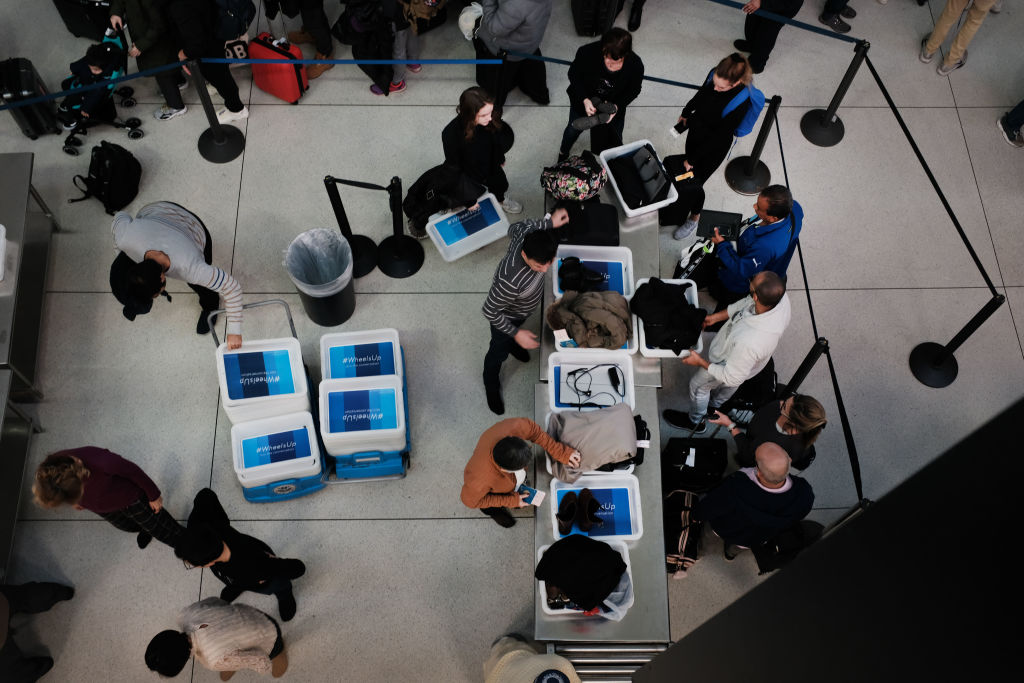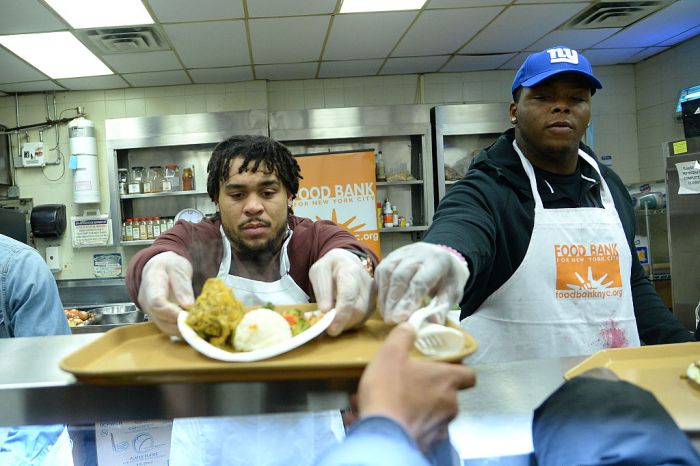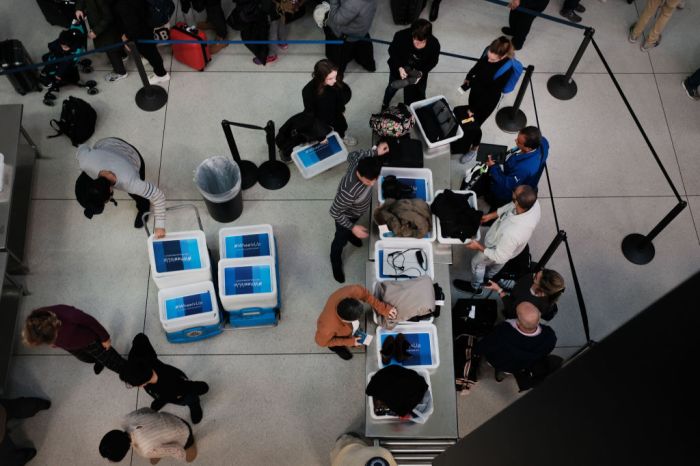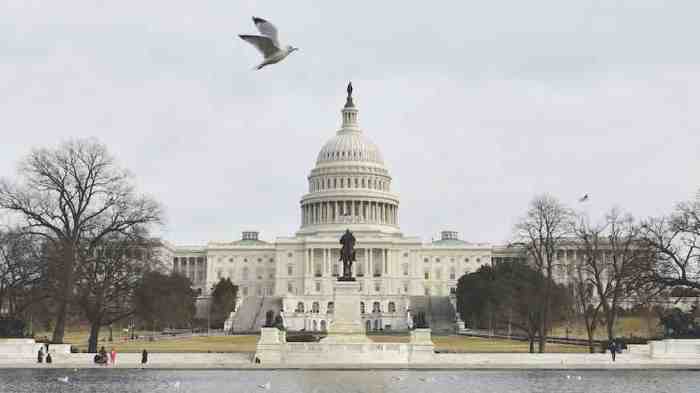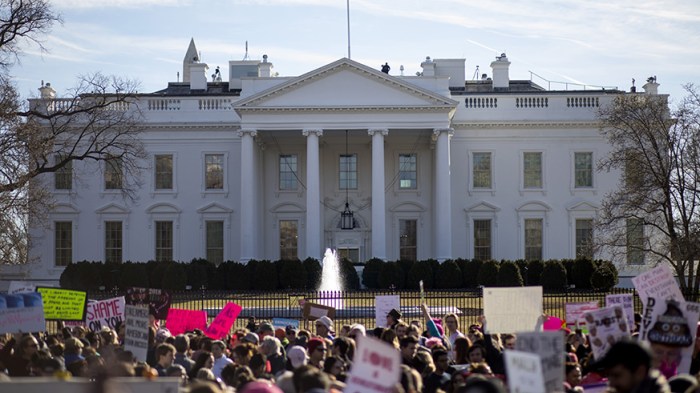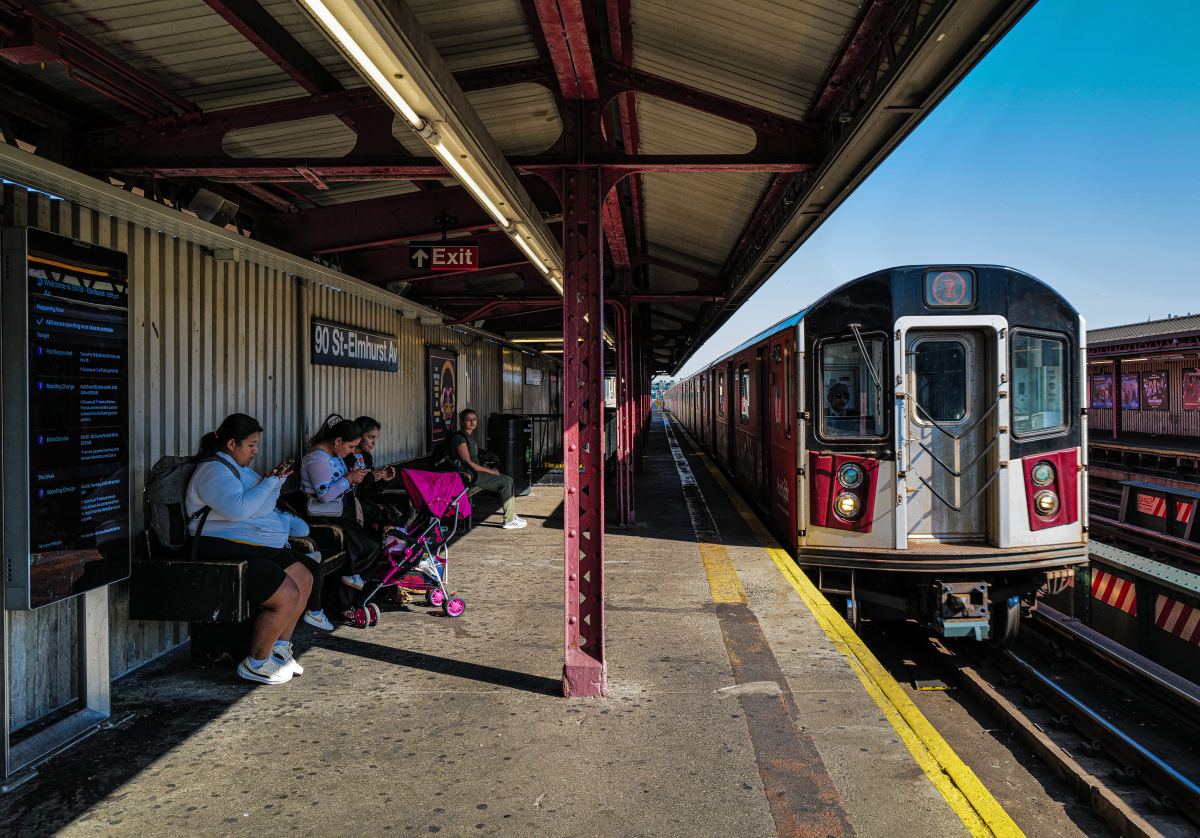As President Donald Trump’s government shutdown continues, now officially the longest U.S. history, workers in New York City are feeling the effects, but people across the city are stepping up to help.
American Federation of Government Employees, a union that represents more than 670,000 federal workers across the country, say their members are concerned.
They’re getting nervous, said Gabriel Pedreira, legislative and political organizer for AFGE who manages the northeast district, including New York.
“For example, TSA agents in the New York area, there are 4,000 of them [in this union], and they make an average salary of $35,000 a year,” Pedreira said. “That’s not a lot of money. When you’re only making $35,000 a year in the New York area and you miss a paycheck, that hurts.”
Members are growing concerned, he added, that they’ll also miss their next paycheck, scheduled for Jan. 25, “based on the rhetoric” coming from the White House.
Trump hasn’t wavered on his quest to get $5 billion for a border wall and even said he could keep the government shutdown going for “months or even years.”
Who is affected by the government shutdown in NYC?
For AFGE members — including TSA agents at JFK and LaGuardia airports; federal prison guards at the Metropolitan Detention Center in Brooklyn; and local Environmental Protection Agency and Department of Housing and Urban Development workers — as well as other federal employees, that’s a life-altering disruption.
Of the 800,000 federal workers affected by the shutdown, 250,000 are veterans, which Pedreira said is “an additional slap in the face” from the White House.
Pedreira has been urging AFGE members to apply for unemployment — “It’s not a lot of money,” he said, “but it’s better than nothing”— but still, that can take a few weeks to process.
The government shutdown began 12:01 Dec. 22, and since Dec. 24 (the first day New York State Department of Labor offices were open after the shutdown began) 1,382 furloughed federal workers applied for unemployment benefits in New York as of Jan. 10, the department said.
“The workers I speak to are nervous and scared. They’re worried that they won’t be able to pay even basic things like their children’s lunch money,” said Pedreira. “Imagine you have a small child who’s counting on lunch money from their mother, and the mother has to look that child in the eye and say, ‘I have no lunch money for you today.’ That’s really tragic on a human level, and it’s unfortunate that the White House doesn’t recognize that.”

A sign saying the area is closed hangs on the Federal Hall Memorial National Historic Site in Wall Street on January 10, 2019. Getty Images
Larry Hirsh, 59, works at the HUD New York City office as a senior community planning and development representative. He luckily has a financial cushion, but still says he’s seeing the negative impact of the government shutdown.
“The whole thing is frustrating. I see no reason for it,” he said, “no reason why we shouldn’t be working, why we shouldn’t be helping groups that help the homeless, which is what I do.”
“My agency, my job has nothing to do with the wall,” he added.
Groups that help the homeless and those in public housing that rely on HUD grants, in New York City and beyond, are in jeopardy because of the government shutdown.
Whether it’s vouchers that have to be reviewed before they can be paid or contracts that have to be signed before they can be renewed, that’s work that is not getting done by Hirsh or his colleagues as long as the shutdown continues.
“People rely on federal funds to do positive things for society,” he said. The federal workers themselves, he added, are middle class. “We’re the middle class Americans that everybody wants to help, and we’re being hurt. The people that we work with that help low and moderate [income] people are also being hurt.”
NYC help for federal employees during government shutdown
As long as the government is shutdown, federal workers won’t be receiving paychecks, whether they’re furloughed at home or still have to show up for their jobs.
To help those impacted, AFGE is putting together multiple food drives around New York City, to provide canned goods, diapers and others items.
Those drives are planned for Department of Veterans Affairs locations in St. Albans, Queens; East 23rd St. in Manhattan; and Bay Ridge, Brooklyn, and should begin this coming week.
Some property managers, including Bronstein Properties which has residential rental properties largely in Brooklyn and Queens, offered to waive late fees for any tenants who are federal employees affected by the government shutdown.
New York Common Pantry also announced Friday that it is “standing with U.S. federal workers” by opening multiple locations to those employees.
The pantry will open its kitchens in East Harlem at 8 East 109th Street will be open Wednesday to Saturday from 10 a.m. to 3 p.m. and in the Bronx at 1290 Hoe Avenue Thursday to Saturday from 10 a.m. to 2:30 p.m., offering produce, dry goods and proteins to every New Yorker carrying a Federal Worker ID.

President Donald Trump’s address to the nation regarding border security is shown on a television screen in Times Square. Getty Images
Those are pantry distribution hours, said Stephen Grimaldi, New York Common Pantry executive director, but if people come any time the pantries are open, between 9 and 6, they’ll be served.
“We felt like we had an obligation to address people when they’re in a predicament,” he said. “We know that there’s a lot of folks who I think will unfortunately not come, but I do hope that everyone who gets the message feels comfortable.”
Though federal workers have been sharing their stresses and concerns about not being able to afford rent or food, it’s still something differently entirely to go to a food pantry.
One woman who stopped by on Friday was a mother of three who has worked for 10 years as a federal employee in New York City. She’d never been to New York Common Pantry before, Grimaldi said, and admitted she was “embarrassed.”
“There’s nothing to be embarrassed about,” said Grimaldi. “It’s not your fault. We’re not blaming you for your situation; we’re here to help you.”

